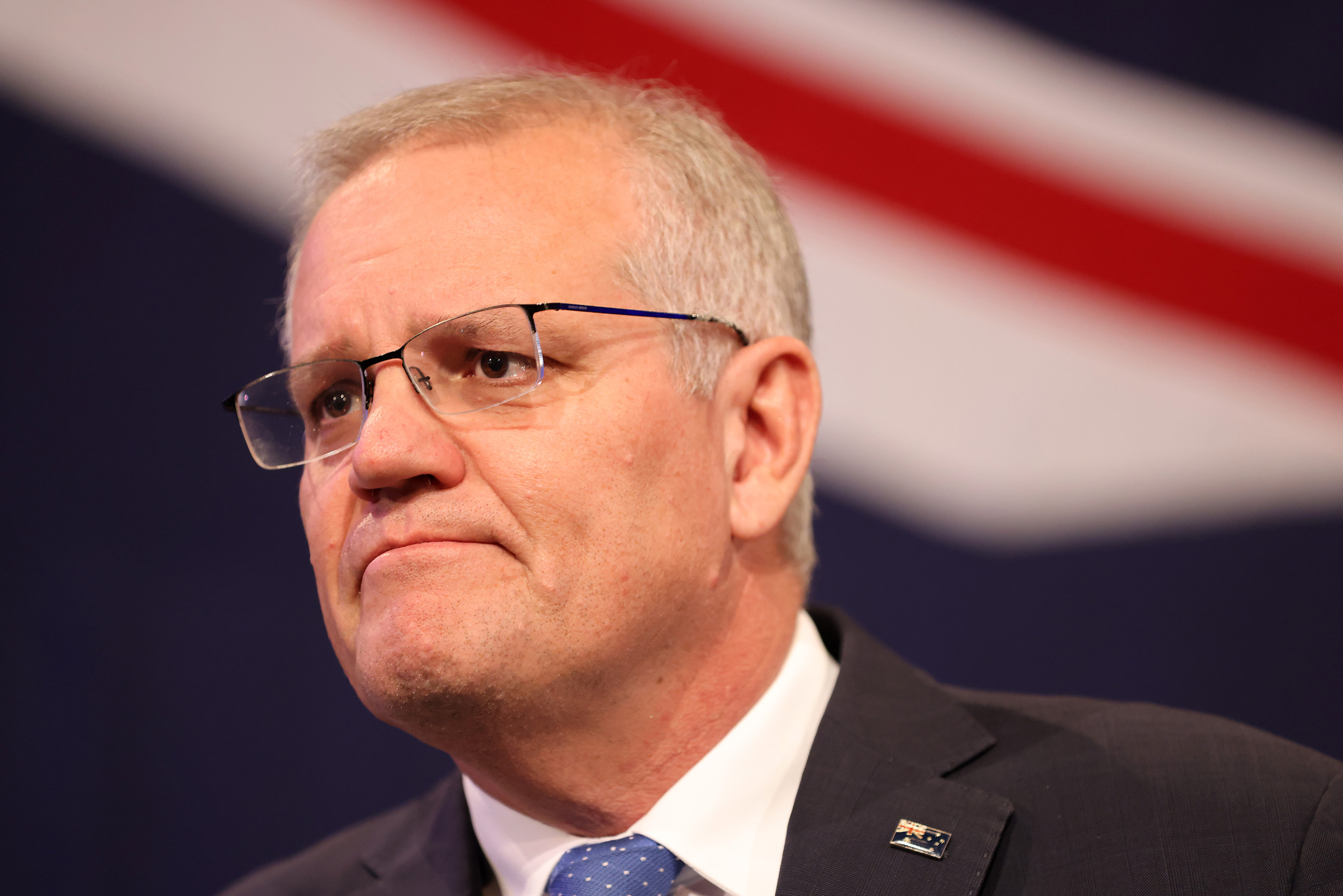The U.S. and its allies can and will remain focused on long-term challenges in Asia despite pressing security concerns in Europe and the Middle East, Scott Morrison, the former prime minister of Australia, has told Newsweek.
“The Middle East and Asia are different theaters. Australia, along with the U.S., will be able to address the present challenge in the Middle East,” Morrison said on the sidelines of the Yushan Forum in Taipei on Wednesday.
The Middle East was an “eternal issue” with its own history, he added.
President Joe Biden is expanding American military support to Israel following the weekend’s attacks by Hamas, the Palestinian militant group that controls the Gaza Strip. Meanwhile, Congress remains at an impasse over a fifth round of aid for Ukraine, which has received $113 billion in U.S. security assistance since Russia’s full-scale invasion in February 2022.
Washington has identified strategic competition with China as a generational challenge. Biden, who reinvigorated the United States’ central role in Asia’s hub-and-spokes alliance system to deter any hint of Chinese adventurism, chiefly on Taiwan, is being tested by the crisis in Ukraine—and the escalating Israeli-Palestinian conflict promises to do the same.
In a show of support, U.S. Secretary of State Antony Blinken was dispatched to Israel and Jordan for a visit beginning on October 11. A carrier strike group led by the USS Gerald R. Ford arrived in the Eastern Mediterranean on Tuesday “to deter any actor seeking to escalate the situation or widen this war,” said the Pentagon‘s Central Command.
These developments have raised questions about America’s capacity to fight multiple fires at the same time. But Morrison said U.S. and allied support for Ukraine and now Israel would not compromise their commitments in Asia.
“Australia, certainly under my prime ministership, made sure that focus was never taken away from challenges in the Indo-Pacific. We were one of the first and most supportive of the Ukraine effort when we were invited, but that didn’t mean we took off our attention for a second on what was happening in the Indo-Pacific,” Morrison said.
“Not only can Australia and the U.S. manage the situation in Ukraine and the Indo-Pacific, but both must manage it,” he said.
Morrison, who was PM from 2018 to 2022, argued that resolve in one region would carry over into another “by sending a message to other authoritarian regimes and autocracies.”
Despite concerns about a potential overcommitment in another part of the world, policymakers in Washington are likely acutely aware of where America’s long-term interests lie.
“The U.S. strategy has been designed to deal with simultaneous small conflicts in multiple locations. Moreover, its commitment in Ukraine has been largely limited to arms transfers,” said Yoichiro Sato, a professor at Japan’s Ritsumeikan Asia Pacific University.
Sato—who previously taught American officers and diplomats at the Asia-Pacific Center for Security Studies, a Defense Department institute in Honolulu—said a potential future response in the Taiwan Strait would require different U.S. weapons and platforms from those transferred to Ukraine and Israel.
“A crisis over Taiwan would involve a different set of issues, most notably the gap in intermediate-range missile forces, in which China has an overwhelming advantage being free from any past arms control agreement,” Sato told Newsweek.
He believes the U.S. is unlikely to become heavily involved in the Middle East.
“The limited threats Hamas poses to Israel can be largely dealt with by Israeli forces. U.S. roles are primarily deterrence against other regional states, like Syria, which may attempt to exploit the situation,” Sato added.
Contacted for comment by Newsweek, the U.S. Indo-Pacific Command said: “As part of our integrated deterrence approach to maintain a free and open Indo-Pacific, we continually assess risk throughout the region. Our assessment of the theater has not changed, and we remain vigilant in concert with our allies and partners.”
Update 10/12/23, 4:45 a.m. ET: This article was updated to add a comment from the U.S. Indo-Pacific Command.

